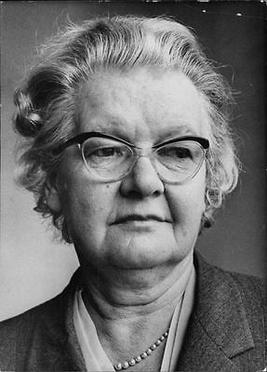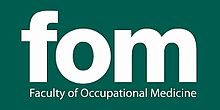
The Royal College of Physicians (RCP) is a British professional membership body dedicated to improving the practice of medicine, chiefly through the accreditation of physicians by examination. Founded by royal charter from King Henry VIII in 1518, as the College of Physicians, the RCP is the oldest medical college in England. It set the first international standard in the classification of diseases, and its library contains medical texts of great historical interest. The college is sometimes referred to as the Royal College of Physicians of London to differentiate it from other similarly named bodies.
A physician assistant or physician associate (PA) is a type of mid-level health care provider. In North America PAs may diagnose illnesses, develop and manage treatment plans, prescribe medications, and serve as a principal healthcare provider. PAs are required in many states to have a direct agreement with a physician.
The Royal College of Paediatrics and Child Health, often referred to as the RCPCH, is the professional body for paediatricians in the United Kingdom. It is responsible for the postgraduate training of paediatricians and conducts the Membership of the Royal College of Paediatrics and Child Health (MRCPCH) exams. It also awards the Diploma in Child Health (DCH), which is taken by many doctors who plan a career in general practice. Members of the college use the postnominal initials 'MRCPCH' while Fellows use 'FRCPCH'.
A medical specialty is a branch of medical practice that is focused on a defined group of patients, diseases, skills, or philosophy. Examples include those branches of medicine that deal exclusively with children (paediatrics), cancer (oncology), laboratory medicine (pathology), or primary care. After completing medical school or other basic training, physicians or surgeons and other clinicians usually further their medical education in a specific specialty of medicine by completing a multiple-year residency to become a specialist.

The Royal College of General Practitioners (RCGP) is the professional body for general (medical) practitioners in the United Kingdom. The RCGP represents and supports GPs on key issues including licensing, education, training, research and clinical standards. It is the largest of the medical royal colleges, with over 50,000 members. The RCGP was founded in 1952 in London, England and is a registered charity. Its motto is Cum Scientia Caritas – "Compassion [empowered] with Knowledge."
The Royal Australasian College of Physicians (RACP) is a not-for-profit professional organisation responsible for training and educating physicians and paediatricians across Australia and New Zealand.
The Faculty of Public Health (FPH) is a public health association in the United Kingdom established as a registered charity. It is the standard setting body for public health specialists within the United Kingdom, setting standards for training, examination, and specialist practice across the four countries of the UK. It is also a source of knowledge and guidance around public health, and advocates for public health nationally and globally.
Pankaj Sharma is a British Professor of Clinical Neurology at Royal Holloway College, University of London, and consultant neurologist at Imperial College London. He is director of the Institute of Cardiovascular Research at Royal Holloway (ICR2UL), and formerly head of the Imperial College Cerebrovascular Research Unit (ICCRU) at Imperial College London. His main interest is in identifying genes for stroke, particularly in those of South Asian heritage.
The Faculty of Pharmaceutical Medicine (FPM) is a faculty of the three Royal Colleges of Physicians of the United Kingdom. It is a UK-based professional membership organisation with 1,600 members; physicians with a professional interest in the speciality of pharmaceutical medicine, the science of discovering, developing and testing new drugs, their regulation, and monitoring them for safety both during development and when they are prescribed. FPM is a registered charity and ultimately exists to bring about an improvement in health in patients and the general population.

Dame Parveen June Kumar, is a British doctor who is currently Professor of Medicine and Education at Barts and The London School of Medicine and Dentistry. She worked in the NHS for over 40 years as a consultant gastroenterologist and physician at Barts and the London Hospitals and the Homerton University Hospital. She was the President of the British Medical Association in 2006, of the Royal Society of Medicine from 2010-2012, of the Medical Women's Federation from 2016-2018 and of the Royal Medical Benevolent Fund from 2013-2020. She was also Vice President of the Royal College of Physicians from 2003-2005. In addition, she was a founding non-executive director of the National Institute of Clinical Excellence, chaired the Medicines Commission UK until 2005, and also chaired the BUPA Foundation Charity for Research until 2013.
Dinesh Kumar Makhan Lal Bhugra is a professor of mental health and diversity at the Institute of Psychiatry at King's College London. He is an honorary consultant psychiatrist at the South London and Maudsley NHS Foundation Trust and is former president of the Royal College of Psychiatrists. He has been president of the World Psychiatric Association and the President Elect of the British Medical Association.
Norwich Medical School is a medical school based at the University of East Anglia, in Norwich, England. It is part of the Faculty of Medicine and Health sciences at the university. The first intake of students was in 2002. The school has a 5-year MBBS course, with the possibility of intercalation after year 3 or 4.
American College of Occupational and Environmental Medicine (ACOEM) is a United States-based professional society for health care professionals in the field of occupational safety and health. ACOEM is the pre-eminent physician-led organization that champions the health of workers, safety of workplaces, and quality of environments.
Michael Alexander Leary Pringle CBE is a British physician and academic. He is the emeritus professor of general practice (GP) at the University of Nottingham, a past president of the Royal College of General Practitioners (RCGP), best known for his primary care research on clinical audit, significant event audit, revalidation, quality improvement programmes and his contributions to health informatics services and health politics. He is a writer of medicine and fiction, with a number of publications including articles, books, chapters, forewords and guidelines.

Neil Greenberg is an academic psychiatrist, who is a specialist in the understanding and management of psychological trauma, occupational mental ill-health and post traumatic stress disorder. Greenberg works with King's College London and served as the President of the UK Psychological Trauma Society from 2014 to 2017. He also runs the psychological health consultancy March on Stress. During the 2020 COVID pandemic, Greenberg was part of the NHS England and Improvement Wellbeing Team and contributed to the national response to protect the mental health of NHS workers.
Samiran Nundy is an Indian gastrointestinal surgeon, medical academic, writer and the President of All India Institute of Medical Sciences, Rishikesh. He is a former member of the faculty at the Cambridge University, London University and Harvard University, and is the founder editor of the National Medical Journal of India and Tropical Gastroenterology. The Government of India awarded him the fourth-highest Indian civilian honour of Padma Shri in 1985.
Paul Litchfield CBE FRCP FFOM is a British physician who was Chief Medical Officer for BT Group plc from 2001 to 2018. He reviewed the Work Capability Assessment run by Atos for the Department for Work and Pensions in 2013 and 2014 and he is an advisor to the UK government on the relationship between mental ill-health, absence from work and the take up of out-of-work sickness benefits.

Dame Albertine Louisa Winner was a British physician and medical administrator. After graduating from University College Hospital Medical School, Winner practised at the Elizabeth Garrett Anderson Hospital, the Mothers' Hospital in Clapton, and Maida Vale Hospital for Nervous Diseases.

The UK Health Alliance on Climate Change (UKHACC), also referred to as the Alliance, is an organisation in the United Kingdom of several major health institutions that give it a collective membership of over 650,000 people including doctors, nurses and other healthcare professionals, with the aim to better public health by combatting climate change. It was founded in 2016 and its founding members include the British Medical Journal (BMJ), the British Medical Association (BMA), The Lancet, the Royal Society of Medicine (RSM) and the Royal College of Physicians (RCP).
The Faculty of Occupational Medicine (FOM) is a faculty of the Royal College of Physicians of Ireland. It is the standard-setting organisation for occupational medicine in Ireland.






